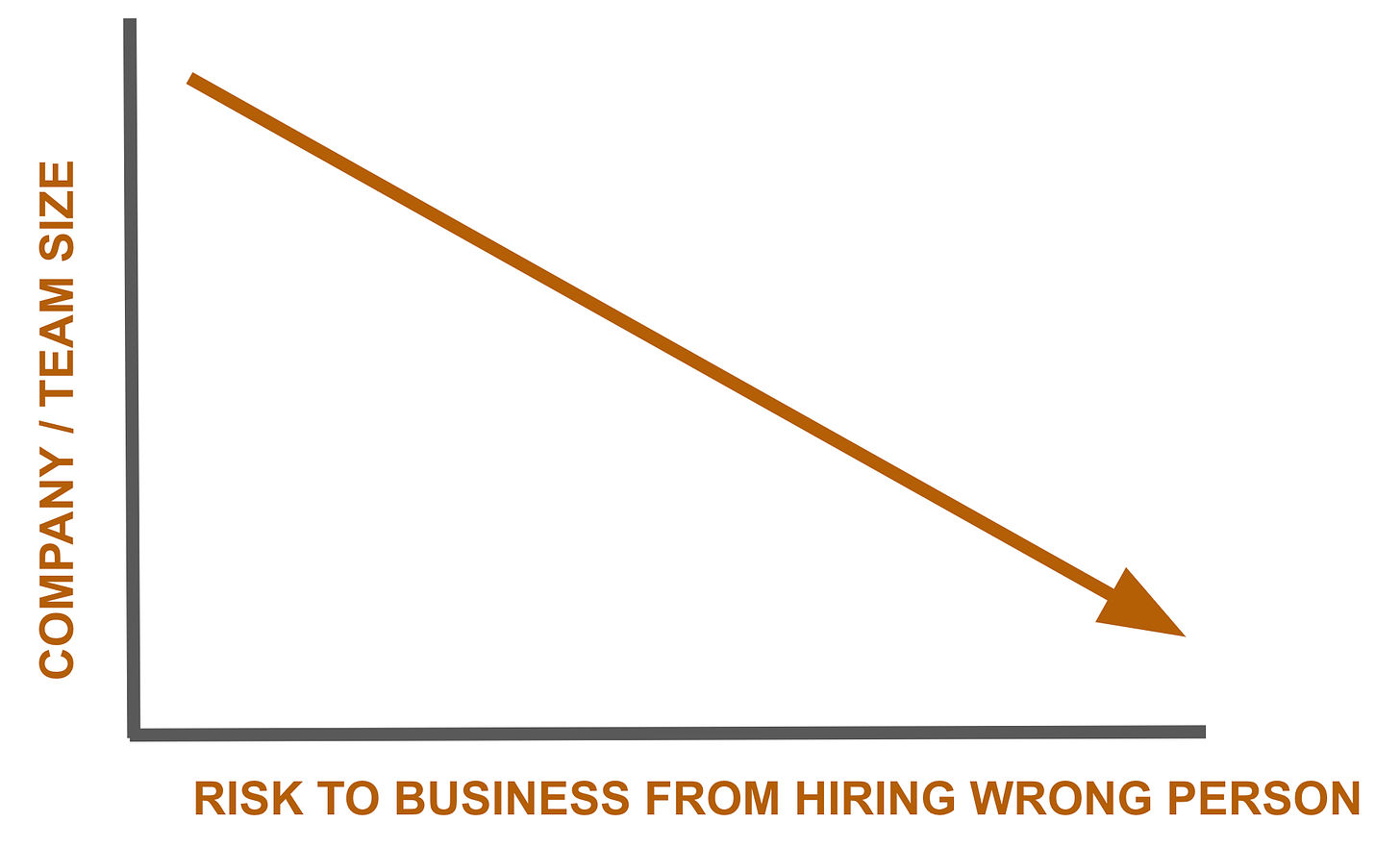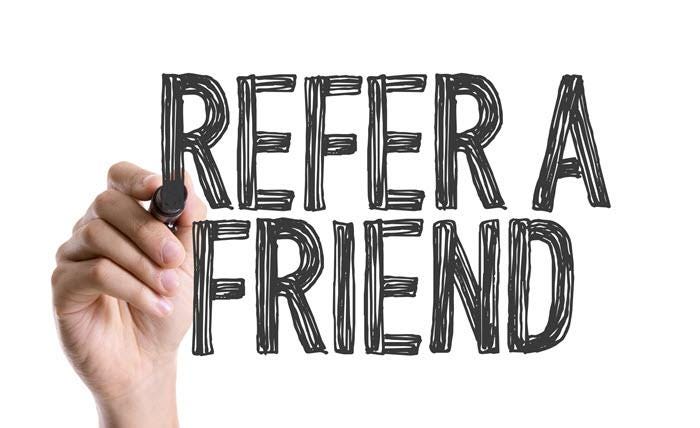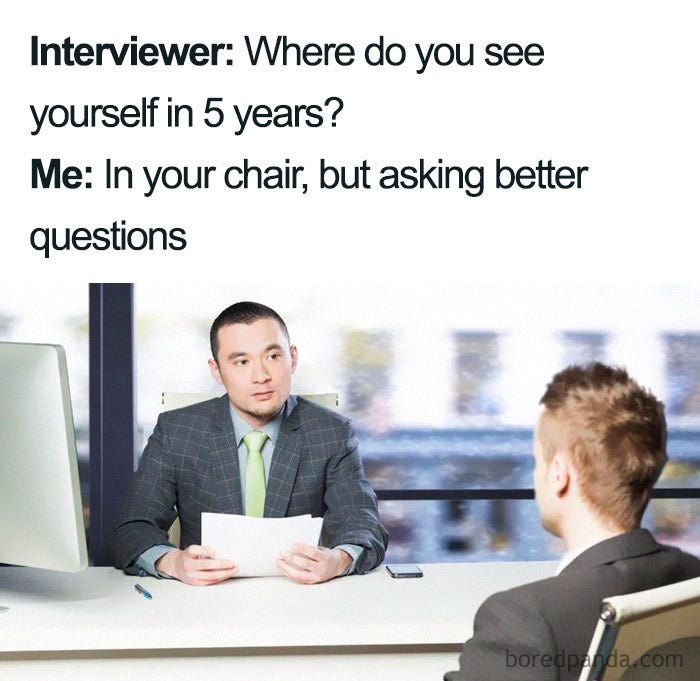When Marriage Advice meets HR Strategy
13 years ago I was chatting with a mentor and unexpectedly found myself getting some unsolicited advice on a topic I knew nothing about: marriage
I asked my mentor what his #1 piece of advice about finding the right life partner was. He smiled wryly and told me
“If you wait a long time in order to find the right person, you’ll be glad you waited. And if you wait a long time and end up finding the wrong person, you’ll still be glad you waited.”
I’ve thought a lot about that semi tongue-in-cheek advice in the years since. Not only am I glad that I listened to it (I fortunately ended up marrying the perfect person for me) but it turns out that the wisdom about “waiting for the right one” doesn’t only apply to finding true love, but also to hiring a dream team at work.
In the working world there’s a (somewhat) cliche’ adage that you need to “get the right people in the right seats on the bus”. When most of us hear that, we nod our head and think we’ll be great at filling those bus seats. But leaders vastly underestimate how extremely hard it is to find and hire the right person. Up to 74% of employers say they have hired the wrong person for a position before. Turns out that most of us have a harder time finding the right person to hire than we do almost anything else!
So how do you find the “perfect” team member? Here are 9 tips on how to hire like a pro (based on many years of direct hiring experience) that you may find useful…

9 Secrets to Hiring Well
#1: Try Not To Hire
The best advice of all is to try to avoid hiring at all if you can. This seems really counter-intuitive until you start to think of all the problems that come with having to manage more people. More people = slower decision making processes, a higher cash burn rate, more interpersonal dynamics to balance, etc… The list goes on, but almost none of it is good.
We mistakenly are quick to hire because people often try to base how important your team is based on the number of people you have. We think that a larger team is a more effective team or a more significant part of the business. We conflate size with impact/importance.
But it’s actually really hard to have a lot of employees. Instead, you want to be proud of how much you can get done with as few people as possible (as long as you can prevent creating unreasonable workloads on your teams). In my experience, smaller teams are often more nimble, united, effective, cost efficient, and feel like better places to work.
You should avoid hiring until it becomes extremely clear that you need an extra person to handle more of the load. Until that point, get creative and find ways to avoid hiring. Is there a technology you can use to save time? Do you really need to get every project on your backlog done (or are there non-value added items masquerading as important items that you can eliminate)? Whatever the means, you’ll often be surprised at what you can do to alleviate your team’s workload without simply adding another person.
Stay small for as long as you can. You’ll be glad you did.
#2: Don’t Hire Mediocre Talent
There’s a famous story in Silicon Valley of a CEO who interviews candidates in a room with a large sign behind his desk that says “mediocre engineers do not build great companies”. It sounds brutal, but it’s also true.
The cost of getting a hire wrong is extremely high. This is especially true of small teams/companies. In large organizations, a bad (or even mediocre) employee can get away with screwing up or not doing their best, but the company/team can still chug along despite them. But for a small team/company a bad hire can often be fatal. In situations with fewer people, the importance of each role increases dramatically.

It is literally better not to hire at all, then to hire someone who isn’t a 9 or 10 on your quality scale. If you are facing a pressing deadline or urgent need to hire someone and you end up compromising on hiring someone who falls below your quality bar, you will almost certainly regret it (and the long term costs will far outweigh the short term benefits).
Have a high bar and stick to it, no matter the cost. Your current team will respect you for it, and you will end up reaping the long term rewards from an “all-stars only” policy.
#3: Know Who You’re Looking For
So if you’re looking for an All-Star, how do you identify them?
Mark Zuckerberg (Facebook’s CEO) once said that his personal framework for hiring someone is (A) someone he would enjoy spending time with socially, and (B) someone he would feel comfortable reporting to if their roles were reversed.
I find that to be a wise maxim when evaluating candidates.
Note: If you can’t find someone you’d truly hang out with socially, you at least want to work with someone who you deeply respect.
Personally, I also look for someone who is smart, gets things done, and has extremely high integrity (in addition to Zuckerberg’s items above).
You can always trust your gut on this. If someone’s resume seems amazing, but you have some misgivings about them on a personal level, you should trust that instinct. It’s rarely wrong.
One last note: I’ve also found that people who are great communicators tend to end up being good employees/team members. People who struggle with articulating ideas or past experience clearly, have rarely translated into being good hires (in my experience).
#4: Don’t Underestimate How Hard it is to Recruit
Remember that the very best people have a lot of great options. You may think that your team or company is the best thing ever, but all-stars will have dozens of opportunities just like yours clamoring for their attention.
It can often take up to a year to recruit someone who is extremely high caliber. You need to convince them that the mission of your company/team is something that they should dedicate the best years of their career to. And that takes time.
I’ve personally found that when I’m in hiring mode it can take up to 25% of my work week. That may sound like an enormous chunk of time to dedicate to recruiting, but getting the “right person on the bus” is so important I think it’s a critical investment.
And if you don’t invest that much time recruiting, you’ll almost certainly fail to end up with someone who is a great fit.
#5: The Best Place to Find All-Stars = Referrals
The best source (by far) to find the caliber of people you want is people you (or other all-stars) know. Most great companies are built exclusively off of referrals for the first 100 or so employees.
One thing you’ll notice at very successful companies (ex: Facebook, Google, Deloitte, etc.) is that shortly after you are hired an HR person will come and shake the names of every smart person you’ve ever met out of you. They do this for a reason. They’re looking for referrals (regardless of how likely you think they are to apply or not).

Don’t be afraid of reaching out to your network. If you’re a high achiever, you want to surround yourself with other ambitious/hard-working pros as well. And that is likely people you already know, so go recruit them. Or ask other team members you deeply respect to refer people from their networks.
#6: Have Your Team Vet Potential Co-Workers
When interviewing a candidate, don’t go it alone. If possible, have as many people on your team interview the potential team member. See if they think this person would be an amazing fit. After all, they will have to work with them too.
This is something I’ve seen way too many managers skip. They make an independent hiring decision without consulting or using the expertise of their team and then are shocked when their new hire doesn’t seem to work well with the others.
Remember, that you’re looking to build a united and effective team, and everyone’s voice should matter.

One other note: If possible do these team interviews in person. It’s usually much easier to get an accurate assessment of how someone interacts with others in person vs. over Google Meet or Zoom.
Meeting in person will also reveal how they treat others who are not even on the interviewing team. I know of a company who will fly candidates out for an interview and then talk to the shuttle-bus drivers and front-desk receptionists to see how the candidates treated them. If an applicant was unkind or talked down to these “lower level” staff, they are automatically disqualified.
#7: Ask the Right Type of Interview Questions
Too many of us treat interviews like casual conversations, with little structure or thought put into it beforehand. The problem with that approach is that it usually plays to our biases and ends up over-emphasizing “how much we like a candidate socially” vs. “are they actually really good at this job?”
Use the same questions (at least initially) for each candidate. This will help you compare apples to apples, when evaluating a large number of candidates. If you ask a bunch of different questions to each applicant, it can be hard to see how they really stack up against one another
Also, avoid brain teaser questions. Too many of us enjoy giving candidates brain teaser questions like “how many golf balls can you fit into an airplane?” instead of asking about their past experience. Really dig into past projects that they’ve done, and figure out how they made decisions, what their impact was, and what they would do differently if they could go back. It will tell you far more about their potential fit, than their creativity with a gimmicky problem question will.
Even better than asking questions is working together. Try to have someone work with you on a short project or come into the office to work with the team for a day. You’ll learn a lot about them, and they will learn a lot about you. You’ll learn things about your ability to work together that you usually can’t identify in a formal interview setting alone.
#8: Call A Candidate’s References
Do your due diligence on a candidate. Remember, this is a person you are going to spend a TON of time with if you end up hiring them, so it would be in your best interest to (A) find out what others who have worked with them previously think of them, and (B) verify that they’re not a psychopath
Tip: Don’t just call the references they give you. Provided references are a useful starting point , but remember they are handpicked to give the “rose colored glasses” version of the candidate to you.
I’ve found it helpful to find references of my own (often via LinkedIn). Look for former co-workers and shoot them a message that says something along the lines of “I’m interviewing XYZ for a role on my team. Do you have a few mins to chat about your experience working with them?”
When you’re on the call, really dig into what others think of the candidate.
- Was this person in the top 5-10% of people they’ve ever worked with?
- What did this person do?
- Would you hire them again?
- What aren’t YOU trying to hire them again?
I’ve been amazed at how often reference calls have ended up preventing me from making a major mistake in hiring. Don’t skip this step even though it can be inconvenient.
#9: Remember Hiring is a 2-Way Street
Lastly, always remember that hiring is a two way courtship. You’re not only trying to see if a candidate is a great match for your company and team, but they’re trying to see if you’re a great fit for them as well. You need to give them the opportunity to figure out if you’re a match for them.
Try to allocate at least ¼ to ⅓ of your interview time for the candidate to ask you questions. You’ll learn a lot about who they are by the questions they ask. I’ve found that my best hires are those who ask the best questions and have clearly done their homework on my company and team.
For example: A candidates questions will often reveal how serious they are about joining your team (or if you’re just #13 on their list of opportunities), how concerned they are about pay/title/promotions, etc…
A candidate who responds “I don’t really have any questions” or asks questions that aren’t very probing likely isn’t worth your time. You want to end up hiring someone who is thinking about this opportunity as critically as you would be. Be skeptical of someone who doesn’t appear to be a critical thinker.
Final Thoughts
If you end up being one of the 74% of people who have made a mistake hiring in the past, don’t feel too bad. We’ve all been there. The good news is that hiring well is a skill that can be learned.
And if you’re still stuck, you can always take comfort in the fact that you’re not alone.



